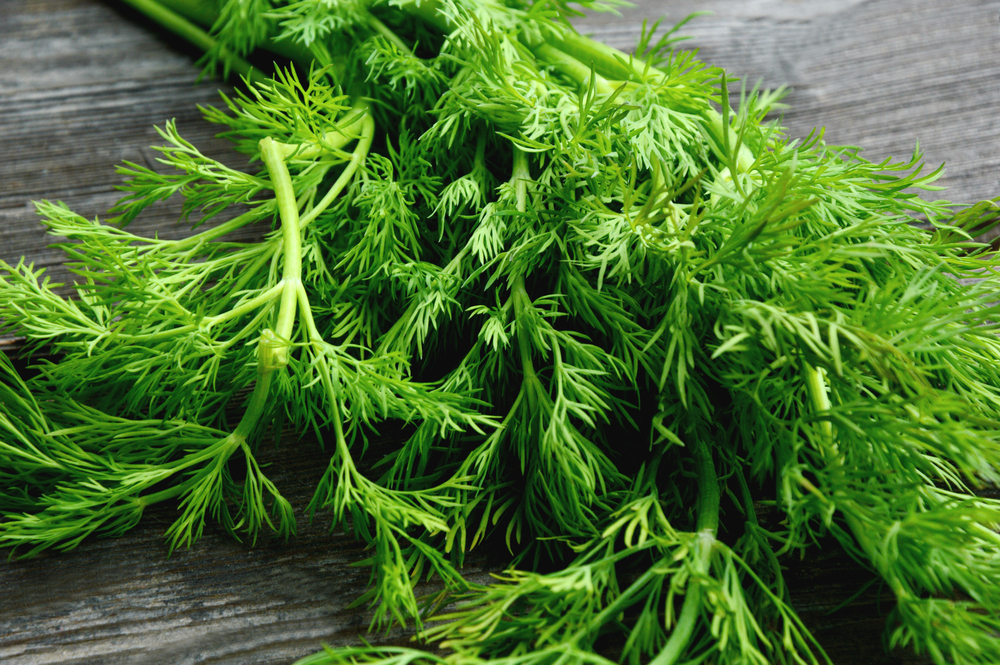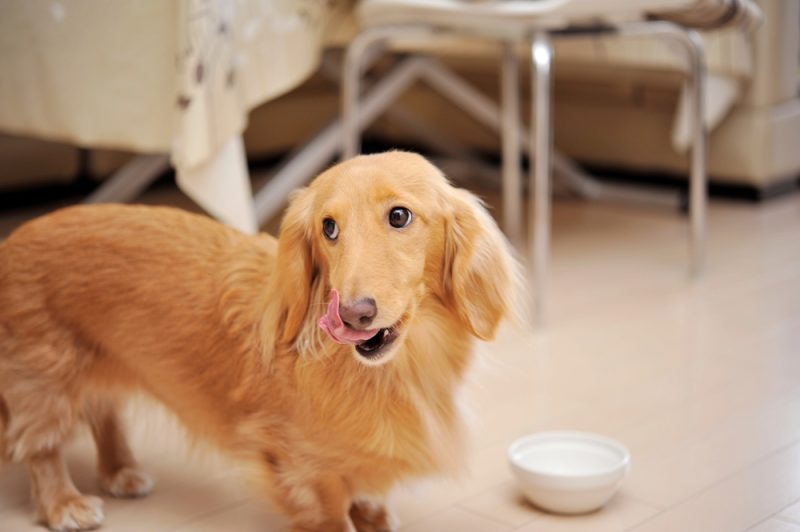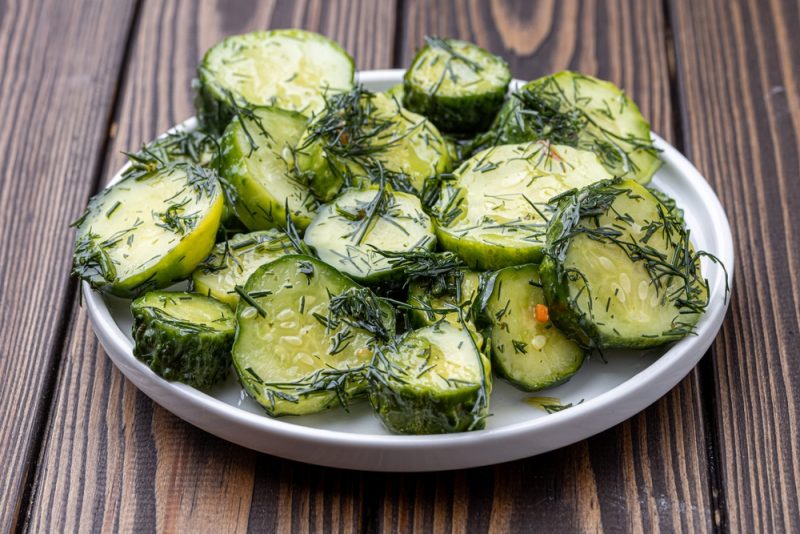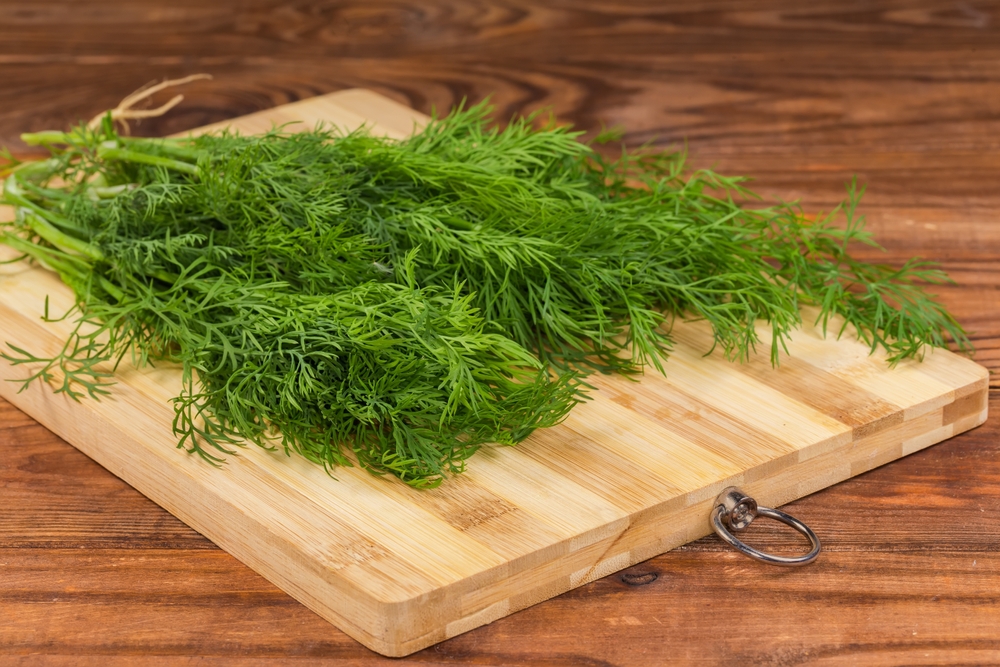[ad_1]
Dill (Anethum graveolena) is a member of the parsley family, Apiaceae, and is safe to feed to dogs, in moderation. There is no evidence that indicates that dill causes problems in dogs, but it is always best to feed it in small amounts, just in case your dog does react badly to it.
You can always increase the amount you feed over time, once you know your dog doesn’t react badly to it. Dill is packed with antioxidants and a host of vitamins and minerals. Some sources even suggest it works well to freshen the breath, although if your dog does have stinky breath, it’s always worth getting your vet to check their mouth for any signs of dental disease.

Is Dill Safe for Dogs?
Dill is non-toxic to dogs but as with any food, you should always start by feeding small amounts to ensure your dog doesn’t react badly to it. If you are feeding something that contains dill, always check additional ingredients to ensure they are all safe for your pup.
If your dog likes the flavor of dill, you can sprinkle a little on top of meals or prepare a dill tea and it will provide a nice dose of antioxidants as well as various vitamins and minerals to benefit your pup’s health.

Benefits of Feeding Dill to Dogs
As well as being non-toxic, dill offers several health benefits to dogs.
- Good for Digestion – Dill has anti-inflammatory and anti-flatulence properties. It has been used in traditional medicines to help with colic in young children. If your dog suffers from gas, constipation, diarrhea, or other digestive concerns, a sprinkle of dill leaves could help.
- Freshens the Breath –Giving your dog dill seeds to chew is thought to improve their breath. However, dill won’t help bad breath caused by dental problems or infection.
- Packed with Antioxidants – Kaempferol and vicenin, which are both found in dill, are powerful antioxidants. In particular, kaempferol has been shown to help combat certain types of cancer (in humans) and it also works as an anti-inflammatory.
- Nutritional Value – Ensuring your dog has a balanced diet helps ensure their good health. While complete dog foods offer recommended levels of vitamins and minerals, dogs can benefit from having extra of some of these important ingredients. Dill contains vitamins A and C as well as copper, folate, iron and manganese.
How to Prepare Dill for Dogs
As well as offering health benefits to your dog, and being non-toxic, dill is easy to prepare and feed to your dog. There are several ways you can add it to your pup’s diet.
- Feed it Fresh – Simply tear or cut a few dill leaves up and put them on top of your dog’s food. It does have a distinctive taste, which means your dog might not like the flavor, but this is the simplest way to feed the herb.
- Prepare a Dill Tea – Boil up some water, put a handful of dill leaves in the boiling water, and then let it cool. Strain the leaves out, if your dog doesn’t like them, and either give the cool tea as it is or pour it over your dog’s dinner to enhance the taste and the health benefits of the food.
- Add It to Other Supplementary Foods – If you prepare bone broth or other liquid supplements at home, add dill to the ingredients you use to give the supplement an extra boost. It takes hours to make bone broth, but it doesn’t require much intervention, and throwing a handful of dill leaves in could help improve your dog’s breath and digestion.

Other Beneficial Herbs for Dogs
You can feed various herbs to your dog, but you should always check that it is safe to feed.
If you’re looking for herbs that are high in antioxidants, rosemary is a good option. Basil has anti-inflammatory properties as well as antioxidants.
Chamomile is another ingredient that is thought to be helpful in reducing anxiety naturally, and it has the added benefit of being a muscle relaxant so is good for dogs with muscular pain. If your dog likes the flavor, you can add a small amount of ground ginger to homemade dog treats, as it can reduce nausea.
Can Dogs Eat Dill Pickles?
Although the dill and the cucumbers are not toxic and both individually offer health benefits to dogs, you should not feed dill pickles. The cucumbers are pickled in a vinegary brine solution that has high levels of sodium and is acidic. Dill pickles can cause stomach upsets so are best avoided.
Dill pickles are often also prepared using additional ingredients like garlic, which is toxic to dogs.

Can Dogs Eat Parsley?
Parsley (Petroselinum crispum) is part of the same family as dill, but it is not safe to feed to your dog. It contains a class of chemical organic compounds known as furanocoumarins. These compounds can cause sunburn and dermatitis if consumed in large quantities. Parsley offers similar nutritional benefits to dill, so it is safer to feed your dog dill rather than parsley.
Featured Image Credit: anmbph, Shutterstock
[ad_2]
Source link
